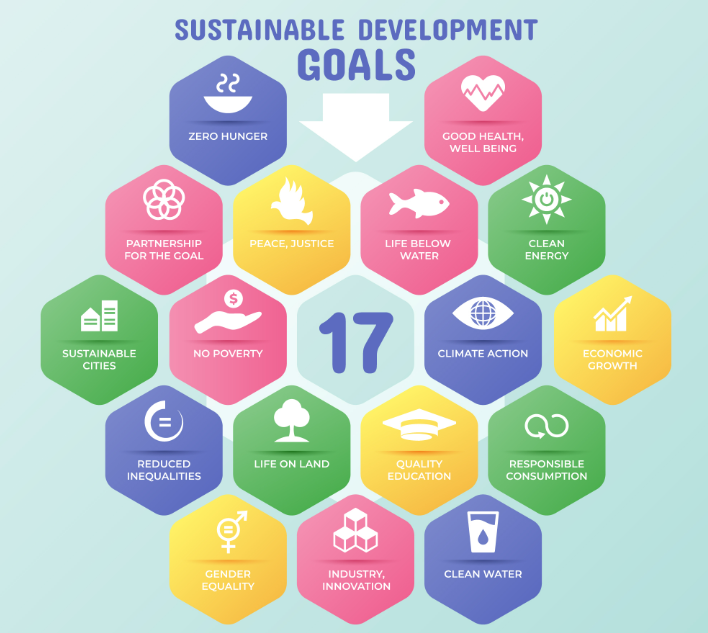India’s Progress on Sustainable Development Goals (GS Paper 3, Environment)

Overview
- India has demonstrated significant progress in its Sustainable Development Goals (SDGs) performance over the past two years, as highlighted in the latest SDG India Index 2023-24 report by NITI Aayog.
- The report, produced in collaboration with the United Nations Development Programme (UNDP) and United Nations India, provides a comprehensive assessment of how various states are advancing toward these global goals.
- This evaluation underscores India's commitment to sustainable development, despite ongoing challenges.
NITI Aayog and the SDG India Index
NITI Aayog's Role
- NITI Aayog, the nodal planning and public policy agency of the Union government, plays a critical role in formulating and monitoring the implementation of sustainable development policies in India.
- Established in 2015, NITI Aayog replaced the Planning Commission with the aim of fostering cooperative federalism and driving India’s development agenda through innovative approaches.
- One of NITI Aayog’s key initiatives is the SDG India Index, which evaluates the performance of states and Union territories against the 17 Sustainable Development Goals adopted by all UN member countries in 2015.
- The Index serves as a tool for tracking progress, identifying areas of concern, and guiding policy interventions to meet the targets set for 2030.
Sustainable Development Goals (SDGs)
- The 17 SDGs encompass a broad range of global challenges, from eradicating poverty and hunger to ensuring quality education, promoting gender equality, and combating climate change.
- These goals aim to address both the social and environmental dimensions of sustainable development, with a target for all member countries, including India, to achieve them by 2030.
National Performance
India's national SDG score improved from 66 in 2021-22 to 71 in 2023-24, reflecting the country’s progress in various areas:
- Affordable and Clean Energy: India excelled in this category with a score of 96, highlighting advancements in energy accessibility and sustainability.
- Clean Water and Sanitation: A score of 89 indicates significant progress in providing clean water and sanitation facilities.
- Sustainable Cities: The score of 83 demonstrates ongoing efforts toward developing sustainable urban environments.
India also made substantial progress in climate action and no poverty, with improvements of 13 and 12 points, respectively. These achievements underscore India's commitment to tackling climate-related challenges and reducing poverty levels.
Areas of Concern
Despite overall progress, certain areas present ongoing challenges:
- Gender Equality: With a score of 49, India’s performance in gender equality remains low, showing minimal improvement over the past two years.
- Reduced Inequality: The score in this area declined from 67 to 65, indicating worsening performance in addressing inequality.
- Peace, Justice, and Strong Institutions: The score stagnated at 74, suggesting the need for further efforts to strengthen institutional frameworks and ensure justice.
State-wise Performance
The report highlights variations in SDG performance across states:
Top Performers:
- Uttarakhand and Kerala were the top performers with a score of 79 each.
- Tamil Nadu, Goa, and Himachal Pradesh also performed well, securing high ranks on the SDG index.
States with Significant Improvement:
- West Bengal, Punjab, Jammu & Kashmir, Assam, and Manipur achieved notable improvements, with each recording an 8-point increase.
- West Bengal’s score rose from 62 in 2021-22 to 70 in 2023-24.
Northeastern States:
- Several northeastern states, including Nagaland, Meghalaya, and Arunachal Pradesh, faced challenges, with lower scores.
- However, Tripura performed at par with the national average, achieving a score of 71.
West Bengal’s Performance
West Bengal’s performance in the SDG India Index 2023-24 is significant:
Areas of Strength:
- The state exceeded the national average in eight parameters, including zero hunger, good health & well-being, affordable and clean energy, and industry, innovation & infrastructure.
Areas for Improvement:
- West Bengal lagged in parameters such as no poverty, quality education, clean water & sanitation, and sustainable cities & communities.
- These areas indicate the need for focused efforts to address developmental challenges.
Conclusion
- India’s progress on the SDG India Index reflects considerable advancements in key areas such as clean energy, water and sanitation, and climate action.
- However, challenges persist, particularly in gender equality and reducing inequality.
- States like West Bengal have shown impressive improvements, but regional disparities highlight the need for targeted strategies to address specific issues.
- As India works towards the 2030 SDG targets, continued efforts and effective policy interventions will be crucial in achieving equitable and sustainable development for all.
- NITI Aayog’s role in monitoring and guiding this progress remains vital in ensuring that India meets its sustainability goals.


